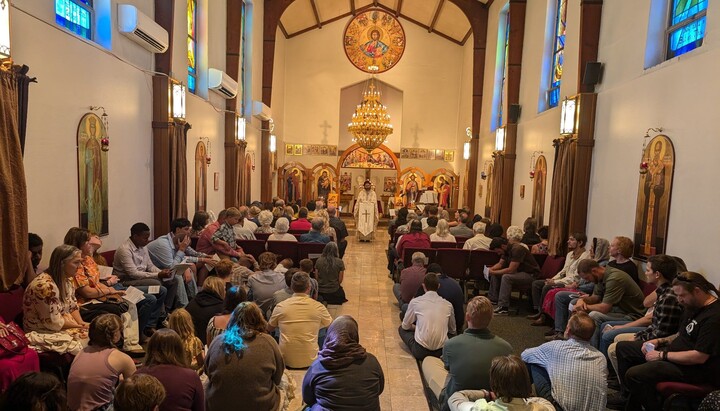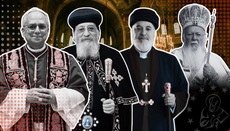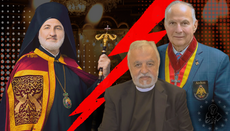The Homily and the Sacrament Factor

Practical Wisdom for Preachers and a Window for the Faithful into the Mystery of the Homily
In our first look at the role of the homily within its liturgical milieu, it was delineated that preaching was the “sacred responsibility of the clergy, deeply integrated into the liturgical rhythm of the church, and […] foundational to the sacramental life.” Preaching, therefore, matters. And while some may downplay the role of preaching in and for the Holy Church, one need not look further than the life and witness of St. John Chrysostom, who is known to us chiefly through his homilies, as an example of the exalted place preaching has in the life of the Church. The “Golden-Mouth” was a Bishop who knew that his responsibility included preaching faithfully and robustly.
St. John Chrysostom spoke of his homiletical task this way: “Preaching really entails hard work, and this fact Paul made plain when he said: ‘Let the presbyters who rule well be held worthy of double honor, especially those who labor in the word and in teaching’” (Homily 22). Preaching does entail hard work. Yet, the work of preaching is not limited to the delivery of the homily within the Divine Liturgy. Rather, the work of preaching begins in prayer and intercession, it is cultivated in writing, and it is completed in delivery.
In what follows, it is my intention to speak to some basic aphorisms that I have found helpful when preparing to preach. Some priests may well be beyond these suggestions, and that is well-and-good. Some, however, may be inexperienced or, even if experienced, lacking courage and comfortability. As God wills, it is my prayer that this encourages those clergymen who are called to preach regularly. It is also my hope that this give the laity a small glimpse into the “hard work” that is done behind the scenes. In future installments, the focus will shift to what makes a good hearer of the sacred, homiletical word. For now, the work of preaching will be our concentration.
Aphorisms on preaching:
- On Sunday, preach on the appointed Gospel
a. There are, of course, times when it is appropriate to preach on the epistle or the significance of a feast. Generally, however, a “topical” sermon series or preaching on any text other than the Gospel during the Sunday Divine Liturgy should be avoided. The Gospel holds pride of place. And it should be on the Gospels that the faithful hear the homily. - Do not apologize for what the Lord says
a. Sometimes, we feel like we must soften the Lord’s message or, worse still, apologize for what He says. Instead, we should simply say what the Lord says in a way that people today can hear Him and understand Him. - Kitsch is inauthentic
a. Young people today are searching for authenticity, precisely because they live in an AI world. Literally, everything people encounter today in the world is artificial. Kitsch is the same way; it is inauthentic. It may be “cute” in our homes, but the church should be the most authentically real place in the cosmos. - Prepare, prepare, prepare
a. On a practical level, the homily is one of the few times in a given week that you have the full attention of your people. On a theological level, the task is a sacramental one, allowing for an encounter with the living voice of Jesus Christ. This should not be entered into inadvisedly or lightly, but with deep, prayerful preparation. Beginning your preparation Saturday night or Sunday morning is an affront to the magnitude of the Christological task at hand. - Speak to YOUR people
a. Every priest knows how he would like to preach a particular Gospel text. However, if it is not for his people, it misses the mark. Pastoral care, particularly within preaching, must always be specific. You preach to the parishioner you have got, not the ones you wish you had. - Homilies are meant to be heard, not read
a. Good practice, especially for the inexperienced or uncomfortable preacher, is to read the homily out loud after finishing his writing and before delivering. This way, the one called to preach can ensure that the words hit the ear, not simply the eyes. - Your character does matter, as you have received holy ordination
a. Among some “Word alone” protestants, the thing that matters is the Scriptures, properly exposited in a lengthy sermon. In Holy Orthodoxy, however, we know that preaching is far more important and complex than that. Thus, it is not just what is said in preaching, but who is saying it. It is essential to ensure that what you are asking of the souls entrusted to you, you also are embodying in your own life. Your lived example of piety will strengthen your preaching. - Read the homilies of the Fathers, but do not simply repeat them
a. The homilies of the Fathers are a treasure-trove of theological richness. The faithful priest today would do well to read these homilies and to listen to what the Holy Fathers are saying. However, like the Scriptures themselves, the preacher must become bi-lingual: interpreting the words of the Fathers and translating them so that people today can hear and believe what has been passed down to us. - Give Christ the final word, not your opinion
a. People need Christ. Period. When the priest offers the homily, he is offering Christ. Opinion – whether of the political or theological variety – should remain at home. Give Jesus Christ to the hearers. He is the one who ultimately “judges justly” (1 Peter 2:23). - Your work does not end at the “Amen” of the homily
a. Continue to pray to God, that the Word which He has planted through you, His unworthy servant, might take root and grow an hundredfold (Mark 4:20).
About the Author
Fr. Joshua Genig is the Rector of St. Innocent of Irkutsk Russian Orthodox Church in Redford, MI. He is a faculty member of Holy Trinity Orthodox Seminary in Jordanville (ROCOR) and serves as the Dean of the Central States of the Moscow Patriarchate. He is a regular contributor to UOJ-USA, where he primarily writes on homiletics, catechism, and other edifying topics.
Fr. Joshua received his B.A. in Religious Studies from Concordia University, Ann Arbor (2003); his M.Div. in Theology from Concordia Theological Seminary, Fort Wayne (2006); and his Ph.D. in Systematic Theology from The University of St. Andrews, UK (2012).









